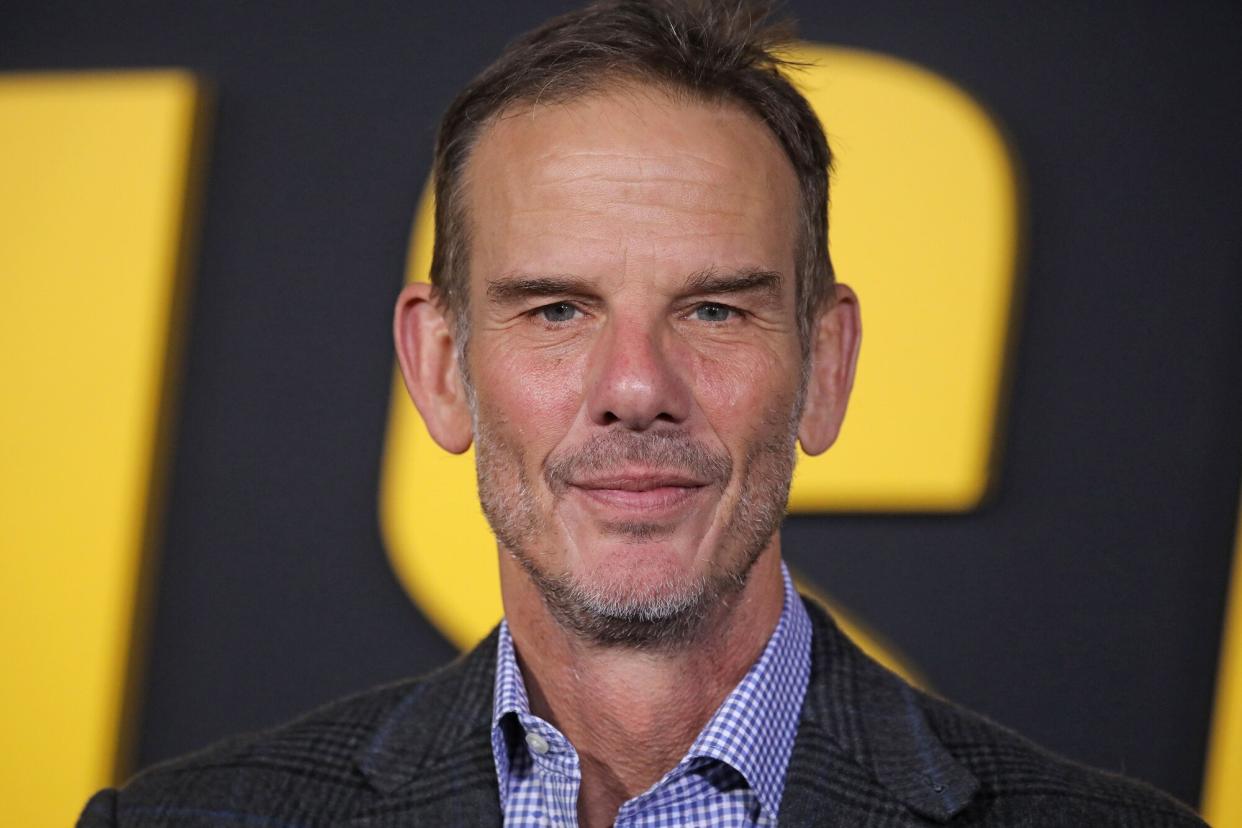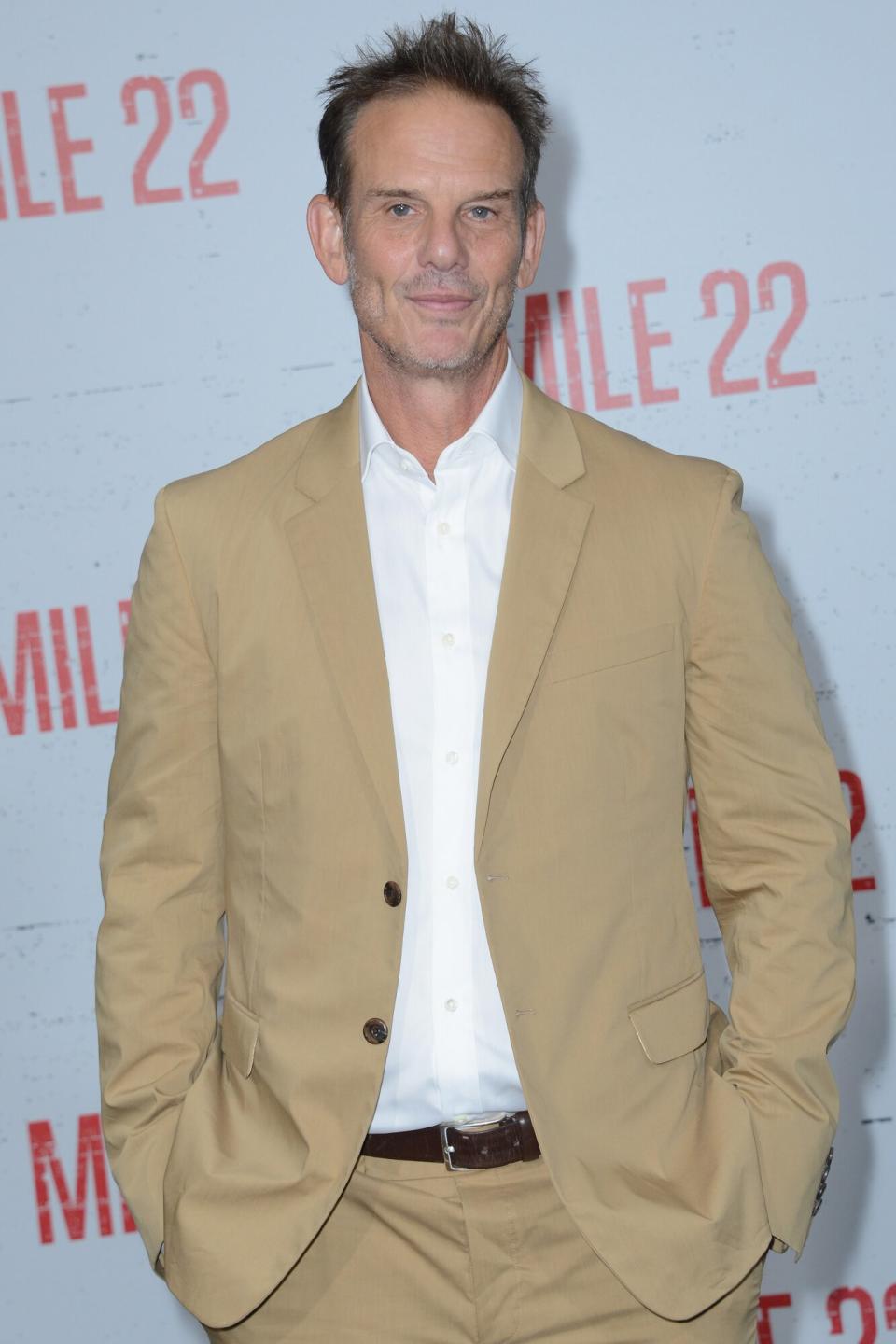Peter Berg on How George Floyd's Death Inspired Docuseries on High School Football Team Coached by Police

- Oops!Something went wrong.Please try again later.
DAVID SWANSON/EPA-EFE/Shutterstock
When George Floyd was murdered by Minneapolis police officer Derek Chauvin in May 2020, Peter Berg immediately recalled his memories of the area where it happened.
"I was just extra horrified and outraged because it happened in a place that I remembered as being very peaceful, and people getting along," the 58-year-old filmmaker tells PEOPLE. "To see the violence of the George Floyd killing just blew my mind... I couldn't understand how that happened in a place I had had such peaceful memories."
Berg — who helped bring the acclaimed series, Friday Night Lights, to television in the early 2000s — said he felt driven to make a "creative response" to Floyd's murder. From that feeling came his four-part documentary, which premieres Jan. 6 on Showtime.
Boys In Blue follows Minneapolis' North Community High School football team in the months following Floyd's death and amid the global protests that erupted to denounce racially-driven police brutality.
The docuseries explores the lives of the team's young student-athletes, who are primarily Black, and how they (and the city) cope with the aftermath of Floyd's murder.
RELATED: NBA Social Justice Coalition Urges Passage of George Floyd Bill to Honor Police Brutality Victims
Berg also spends time with the team's coaches, who were in a unique position — they are all current or former members of the Minneapolis Police Department.
The series takes place over the 2021 football season and tragically ends with the death of the team's 15-year-old quarterback, Deshaun Hill, who was shot and killed by a man walking past him in February 2022.
Showtime made the first episode of the series available on YouTube.
RELATED: Ex-Cop Sentenced Who Kneeled on George Floyd's Back During Killing Sentenced to 3.5 Years
Below, Berg talks with PEOPLE about spending time with Hill and his teammates, and what he hopes viewers take away from the series.
This interview has been lightly edited and condensed for clarity.
I noticed the documentary does not have a narrator and relies on the coaches and players to tell their stories.
Peter: By not having a narrator — just letting it be kind of "cinéma vérité" — we could just let it be what it is. I thought maybe we could avoid the pitfalls that CNN and Fox News can't get out of, which are strong opinions, and binary thinking. It's what I call "know-it-all energy."
I don't like know-it-all energy. And by just letting it be and filming what it was, I think we were able to get a more complex look at this community and some of these issues.
Was it difficult to convince the players and coaches to participate in the series or convince them of your vision for it?
Peter: I wouldn't say it was easy. It took several trips out there. Frank conversations between me and my side, and the Minneapolis Police Department, the school board that is in charge of Minneapolis North, the families and everybody who had to be talked into letting us come out there.
I believe that our intentions were to just tell this story, not to take a side. We didn't go in with an agenda other than we want to see what your lives are like, and is that okay by you? And they let us in.
What did you learn while spending time with the families? How did that affect you personally, especially considering Deshaun's death?
Peter: The undeniable reality of how violent life is for these kids, how dangerous it is and how graduating from high school alive can be a real challenge. That reality was sealed into all of us who were out there and who got to know Deshaun Hill as well as we did. And having to watch his community bury him was just mind-blowing.
When you heard of Deshaun's death, what was your response? Was filming for the documentary done by that point?
Peter: We were wrapping up. The football season was over. I was in Canada and got a call that Deshaun had been murdered. I didn't believe it. I'm like, come on, what are you talking about?
It's very hard, if not impossible, to make sense of any of these young deaths, people taken way too soon for no apparent reason. It just didn't make sense. And we all experienced that, obviously, not just the film crew, but particularly the community, the family, Deshaun Sr., his sisters, his immediate friends.

Albert L. Ortega/Getty
People were just absolutely pulverized emotionally by this and still are. It's just something that is, I find, very, very difficult to process. It's really sad. It's infuriating. It's confusing. And I think, fundamentally, it serves to remind you how utterly fleeting life is and how we must take care of our lives and the people we care about because it's all going to go. And sometimes it goes really fast and too soon.
At one point, one of the players says that the team is like a "family" to him. And despite their feelings toward police officers after George Floyd's death, it didn't affect their love for their coaches.
Peter: It's 100 percent family. It's a brotherhood. It's a brotherhood in which these kids are able to find self-confidence, discipline, sacrifice, teamwork — all of these kinds of qualities, which sound kind of like stereotypical, maybe, or hype, but they're real. And the relationship that these kids have with each other, the fact that these coaches who happen to be cops really do care about them and create these mentor roles and they're able to have other men in their lives who are good guys, who are helping them better themselves. It creates this whole sort of tribe of love, and it's a beautiful thing.
RELATED VIDEO: Derek Chauvin Sentenced to 22.5 Years in Prison for Murder of George Floyd
What do you hope viewers take away from the series?
Peter: I think it's, for me, nice to be reminded that there are a lot of really good people alive and thriving in this country. That there is good, there is love. There are people who generally want the best for each other and who will help.
When you see people, like the principal of Minneapolis North — this is a good person, and we don't pay enough attention to the good people.
People are not bad, most people aren't. But we like to pretend that they are. And we like to give so much attention to the bad ones. And one of the things I like about my time at Minneapolis North is we mainly saw really good people, and then we saw how one bullet steals the show, and that's all that people want to talk about. And it's just not the way it is.
Most of the people, despite being constantly exposed to some pretty dark things, kept their love lights on, and they continue to be loving. And I think that for me, I believe most people are that. Sometimes we just choose to ignore it, because it doesn't sell.

